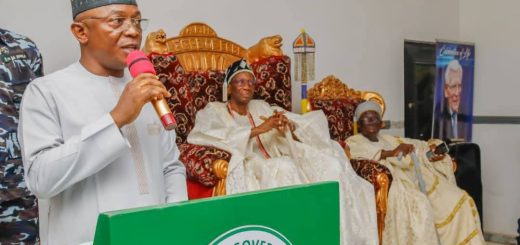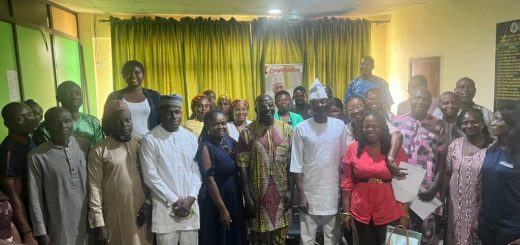In honor of the 2025 International Women’s Day, women in Nigeria’s maritime industry are raising their voices against the deeply rooted gender biases that continue to challenge their professional advancement. These women have identified not only the persistent stereotypes they face but also the fragmented advocacy groups, often backed by the government, as significant barriers to their growth in this traditionally male-dominated sector.
In an exclusive interview with Shipping Position Daily, Mrs. Rollens Macfoy, President of Women In Maritime Africa (WIMA), emphasized that outdated perceptions of women as overly emotional or incapable of handling the demands of life at sea have hindered progress. She pointed out that despite women’s proven competence across various industries—ranging from aviation to logistics—only about two percent of Nigeria’s maritime workforce is female. Mrs. Macfoy argued that women, like their male counterparts, can successfully balance professional ambitions with family responsibilities, citing numerous examples from other sectors where women thrive while managing family duties.
Critically, Mrs. Macfoy called out industry institutions and government agencies, including the Nigerian Maritime Administration and Safety Agency (NIMASA), for providing training for female seafarers without ensuring adequate employment opportunities. She also highlighted the issue of multiple women-centric associations within the maritime sector. While these groups, which focus on areas like trading, shipping, logistics, and terminal operations, are professionalized, their fragmentation has weakened the collective voice of women in the industry.
Despite these challenges, Mrs. Macfoy remains hopeful. She believes that women in maritime consistently exceed expectations when given the chance and that a unified approach could lead to more inclusive policies and improved job prospects.
“If ship owners don’t consider hiring women, how can a daughter ever be assured of a future in this field?” she questioned. “We have women in various aspects of maritime, from trading and shipping to logistics. Imagine the impact if we could unite under one umbrella as women in maritime Nigeria. The government often exacerbates these divisions by focusing on specific sectors, but if we consolidate our voices, we can demand a level playing field.”
Engr. Matthew Alalade, the immediate past President of the Nigeria Merchant Navy Officers & Water Transport Senior Staff Association, echoed these sentiments, emphasizing that the challenges facing female representation are not unique to Nigeria. He noted that while many institutions worldwide are reluctant to acknowledge these issues, Nigeria is making strides to integrate more women into leadership roles and on board vessels.
However, Alalade stressed that the success of these reforms relies not only on systemic changes but also on individual commitment. “Women must meet the professional standards expected within these evolving structures,” he advised.
Captain Tajudeen Alao, National President of the Nigerian Association of Master Mariners (NAMM), also called for a renewed focus on empowering Nigerian women to realize their full potential. “We need to encourage our women to come out, to explore, to express their full potential,” he said, emphasizing that women should not be sidelined.
Captain Alao celebrated the remarkable achievements of women both nationally and internationally, acknowledging those who have broken barriers and set new standards of excellence. He added a personal touch, noting that his own mother and wife exemplify the strength and success of women.
As we commemorate International Women’s Day 2025, it’s clear that the call for change in the maritime industry is stronger than ever. By addressing these challenges and fostering unity among women, we can pave the way for a more inclusive and equitable future in maritime.



